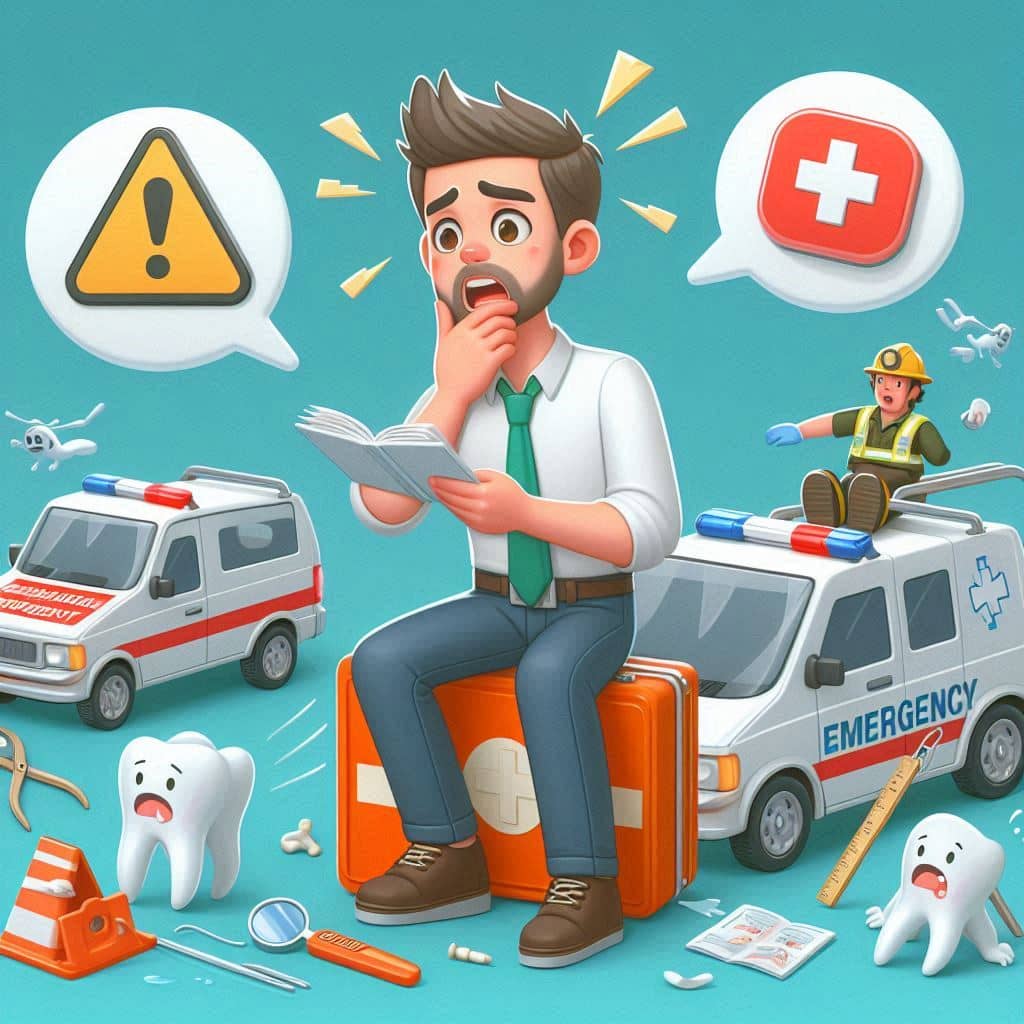As a parent, you want to protect your child from harm, but accidents can happen in the blink of an eye. Dental emergencies can be particularly distressing, especially if you’re unsure of what to do. At Pristine Smiles, Juhu, we understand the importance of being prepared and knowing how to respond to dental accidents.

According to the American Academy of Pediatric Dentistry, dental injuries are common in children, with over 50% of kids experiencing some form of dental trauma before adulthood (American Academy of Pediatric Dentistry, 2020). This can include knocked-out teeth, chipped teeth, or even a broken jaw.
So, what can you do as a parent to prepare for dental emergencies? Here are some tips and examples of incidents and what to do when they occur:
1. Keep a Dental Emergency Kit Handy
Assemble a kit with essentials like gauze, a clean cloth, a small container for storing a knocked-out tooth, and your child’s dental information. This will help you respond quickly and effectively in an emergency.
Example: Your child trips and falls, knocking out a tooth. Use the gauze to stop any bleeding, and place the tooth in the small container. Seek immediate dental attention.
2. Know What to Do for Common Dental Emergencies
- Knocked-out tooth: Rinse the tooth gently, store it in milk or a saline solution, and seek dental attention within an hour (American Dental Association, 2020).
- Chipped tooth: Use a clean cloth to apply pressure and stop any bleeding. Seek dental attention as soon as possible.
- Broken jaw: Apply a cold compress and seek immediate medical attention.
Example: Your child’s tooth is chipped during a sports game. Use a clean cloth to apply pressure and stop any bleeding. Seek dental attention as soon as possible to prevent further damage.
3. Be Aware of Potential Dental Hazards
Identify potential hazards in your home and take steps to prevent accidents. For example:
- Secure loose furniture and objects that could fall and cause injury.
- Use protective gear during sports and physical activities.
- Supervise your child during playtime to prevent accidents.
Example: You secure a loose bookshelf to prevent it from falling and causing injury to your child.
4. Teach Your Child What to Do in a Dental Emergency
Educate your child on basic first aid and what to do in a dental emergency. This can help them respond calmly and effectively until you arrive.
Example: Your child knows to rinse a knocked-out tooth gently and store it in milk until you arrive.
5. Keep Your Child’s Dental Information Handy
Record your child’s dental history, including their dentist’s contact information and any allergies or medical conditions. This can help you respond quickly and effectively in an emergency.
Example: You keep a copy of your child’s dental records in your emergency kit, which includes their dentist’s contact information and any allergies or medical conditions.
In conclusion, dental emergencies can happen at any time, but being prepared and knowing what to do can make all the difference. By following these tips and being aware of potential hazards, you can help keep your child safe and ensure they receive the best possible care in case of an emergency. At Pristine Smiles, Juhu, we’re committed to providing top-notch dental care and guidance to help you and your child navigate any dental emergency.
FAQs
1. What should I do if my child’s tooth is knocked out?
Rinse the tooth gently with water, avoid touching the root, and store it in milk or a saline solution. Seek dental attention within an hour.
2. How should I handle a chipped tooth?
Use a clean cloth to apply pressure and stop any bleeding. Rinse the mouth with warm water and seek dental attention as soon as possible.
3. What if my child has a broken jaw?
Apply a cold compress to reduce swelling and seek immediate medical attention. Do not attempt to move the jaw.
4. Can I use any container to store a knocked-out tooth?
It’s best to use a small, clean container with milk or a saline solution. If these are not available, use clean water.
5. How can I prevent dental injuries at home?
Secure loose furniture, supervise playtime, and ensure your child wears protective gear during sports and physical activities.
6. Should my child avoid certain foods after a dental injury?
Yes, avoid hard, sticky, or chewy foods until your child has been evaluated by a dentist. Stick to soft foods and liquids.
7. How can I teach my child about dental emergency preparedness?
Educate them on basic first aid, such as how to handle a knocked-out tooth, and ensure they know your dentist’s contact information.
8. What is the best way to stop bleeding from a dental injury?
Use a clean cloth or gauze to apply gentle pressure to the affected area. If bleeding persists, seek dental or medical attention.
9. How often should I update my child’s dental emergency kit?
Check and update the kit every six months to ensure all supplies are fresh and the information is up-to-date.
10. Can dental injuries affect my child’s permanent teeth?
Yes, trauma to baby teeth can sometimes affect the development of permanent teeth. It’s important to seek professional dental care to assess any potential impact.
